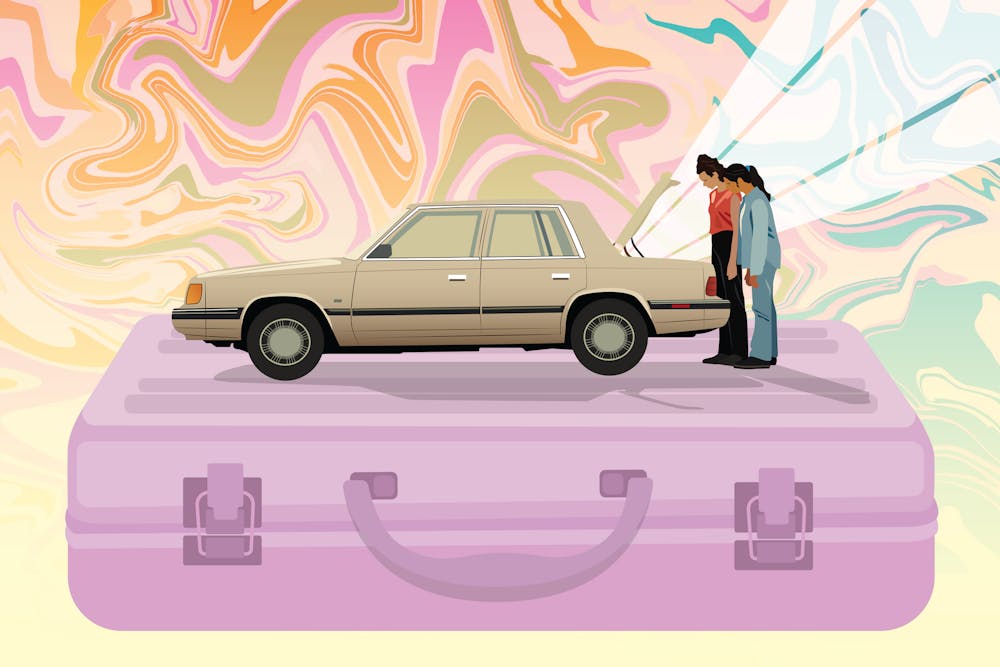Half of the infamous directorial Coen brothers ("The Big Lebowski," "No Country for Old Men"), Ethan Coen is no stranger to avant-garde storytelling on the big screen. His latest film, “Drive-Away Dolls,” embraces the experimental style that Coen knows best, but the messy production falls short on the charm of well-done absurdism.
The film follows friends Jamie and Marian as they embark on a road trip to Tallahassee, Florida to shake their romantic woes and get a fresh start.
Margaret Qualley, the actress who portrays Jamie, struggles with a too-thick Texan accent throughout the movie, while Geraldine Viswanathan's character Marian can't seem to crack a smile.
Both main characters are lesbians, and “Drive-Away Dolls” is a refreshing pivot away from the over-sexualization of queer women in cinema. Jamie and Marian’s sexualities certainly matter to the story, but their characters are not solely defined by their preferences.
The film could easily be considered a sex comedy, and it is about time for queer audiences to have their raunchy fun in theaters, especially considering lesbianism is so often used as a function of erotica in heterosexual cinema.
Clocking in at less than 90 minutes, “Drive-Away Dolls” presents like a 1980s B-movie, relying heavily on dialogue rather than action-packed scenes.
This is not an inherent weakness, however. If anything, the dialogue is one of the film’s few redeeming qualities. To keep audiences engaged, such a dialogue-heavy movie has no choice but to depend on a well-written script.
While the script had potential — and plenty of raunchy, funny moments — Qualley and Viswanathan lacked the on-screen chemistry so crucial to successful dialogue scenes. Their purposefully mismatched characters might have been unlikely friends in the film’s reality, but the actresses were unconvincing in their partnership.
The sometimes-flimsy conversation scenes are still more captivating than the off-hand psychedelic montages sprinkled throughout, which are entirely disarming. The montages swirl with bright colors and a strange, unnecessary Miley Cyrus guest appearance, removing audiences entirely from the buddy-cop-meets-queer-rom-com plotline.



